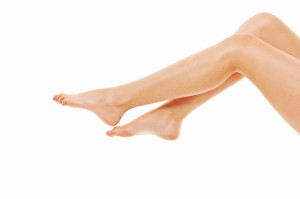Copyright © Michigan Foot and Ankle | Site Map | Nondiscrimination Policy | Design by: Podiatry Content Connection
March 2017
Custom Orthotics Reduce Risk of Sports Injuries
 Foot-related sports injuries are extremely common, due to overuse and repetitive strain on the feet. Plantar fasciitis and Achilles tendonitis are two of the most common of these injuries. Counterintuitively, those of us that only play sports on the weekends have a greater risk of suffering from heel and tendon injuries. Orthotics can help reduce the odds that you’ll get hurt. If you jog, play tennis or basketball, or do any kind of high ground impact activity, you should consider getting fitted for orthotics. Custom made for your foot, they will meet your specific foot needs, and prevent further foot injury.
Foot-related sports injuries are extremely common, due to overuse and repetitive strain on the feet. Plantar fasciitis and Achilles tendonitis are two of the most common of these injuries. Counterintuitively, those of us that only play sports on the weekends have a greater risk of suffering from heel and tendon injuries. Orthotics can help reduce the odds that you’ll get hurt. If you jog, play tennis or basketball, or do any kind of high ground impact activity, you should consider getting fitted for orthotics. Custom made for your foot, they will meet your specific foot needs, and prevent further foot injury.
If you are having discomfort in your feet and would like to try orthotics, contact one of our podiatrists from Michigan Foot and Ankle. Our doctors can provide the care you need to keep you pain-free and on your feet.
What Are Orthotics?
Orthotics are inserts you can place into your shoes to help with a variety of foot problems such as flat feet or foot pain. Orthotics provide relief and comfort for minor foot and heel pain but can’t correct serious biomechanical problems in your feet.
Over-the-Counter Inserts
Orthotics come in a wide variety of over-the-counter inserts that are used to treat foot pain, heel pain, and minor problems. For example, arch supports can be inserted into your shoes to help correct overarched or flat feet, while gel insoles are often used because they provide comfort and relief from foot and heel pain by alleviating pressure.
Prescription Orthotics
If over-the-counter inserts don’t work for you or if you have a more severe foot concern, it is possible to have your podiatrist prescribe custom orthotics. These high-quality inserts are designed to treat problems such as abnormal motion, plantar fasciitis, and severe forms of heel pain. They can even be used to help patients suffering from diabetes by treating foot ulcers and painful calluses and are usually molded to your feet individually, which allows them to provide full support and comfort.
If you are experiencing minor to severe foot or heel pain, it’s recommended to speak with your podiatrist about the possibilities of using orthotics. A podiatrist can determine which type of orthotic is right for you and allow you to take the first steps towards being pain-free.
If you have any questions please contact one of our offices located in Ferndale, and Milford, MI . We offer the newest diagnostic and treatment technologies for all your foot and ankle needs.
Gradually Increase Exercise to Avoid Foot Injury
 Exercising is just as important for the feet as it is for the rest of the body. While recent trends favor high intensity interval training (HIIT), opting for a lower intensity workout may be healthier and safer in managing one’s foot health. Immediately starting a high intensity workout puts the body at greater risk for developing injuries and conditions such as stress fractures, plantar fasciitis, inflamed tendons, and muscle strains. Instead of forcing the body to start an intense regimen, gradually build up your exercise to allow the body to adjust. A great way to start can include doing at least 30 minutes of cardio a day, such as brisk walking or cycling.
Exercising is just as important for the feet as it is for the rest of the body. While recent trends favor high intensity interval training (HIIT), opting for a lower intensity workout may be healthier and safer in managing one’s foot health. Immediately starting a high intensity workout puts the body at greater risk for developing injuries and conditions such as stress fractures, plantar fasciitis, inflamed tendons, and muscle strains. Instead of forcing the body to start an intense regimen, gradually build up your exercise to allow the body to adjust. A great way to start can include doing at least 30 minutes of cardio a day, such as brisk walking or cycling.
Exercising your feet regularly with the proper foot wear is a great way to prevent injuries and build strength. If you have any concerns about your feet, contact one of our podiatrists from Michigan Foot and Ankle. Our doctors can provide the care you need to keep you pain-free and on your feet.
Exercise for Your Feet
Exercise for your feet can help you gain strength, mobility and flexibility in your feet. They say that strengthening your feet can be just as rewarding as strengthening another part of the body. Your feet are very important, and we often forget about them in our daily tasks. But it is because of our feet that are we able to get going and do what we need to. For those of us fortunate enough to not have any foot problems, it is an important gesture to take care of them to ensure good health in the long run.
Some foot health exercises can include ankle pumps, tip-toeing, toe rises, lifting off the floor doing reps and sets, and flexing the toes. It is best to speak with Our doctors to determine an appropriate regimen for your needs. Everyone’s needs and bodies are different, and the activities required to maintain strength in the feet vary from individual to individual.
Once you get into a routine of doing regular exercise, you may notice a difference in your feet and how strong they may become.
If you have any questions please feel free to contact one of our offices located in Ferndale, and Milford, MI . We offer the newest diagnostic and treatment technologies for all your foot and ankle needs.
The Importance of Diabetic Foot Care
 For those who have diabetes, it’s important to remember how vital it is to take proper care of your feet. Diabetes can lead to long-term foot problems if the feet are not constantly monitored and managed. Avoid using temperature-controlled items such as heating pads or electric blankets, as diabetic feet are prone to a loss of feeling, or neuropathy and can be easily burned. Avoid picking at corns, calluses, or ingrown toenails without professional supervision. Always wear shoes and avoid walking barefoot. Do routine checks of your feet, maintain proper hygiene, and do foot exercises to encourage blood circulation. Be sure to watch your diet to maintain healthy blood sugar levels, and visit your podiatrist often for check-ups.
For those who have diabetes, it’s important to remember how vital it is to take proper care of your feet. Diabetes can lead to long-term foot problems if the feet are not constantly monitored and managed. Avoid using temperature-controlled items such as heating pads or electric blankets, as diabetic feet are prone to a loss of feeling, or neuropathy and can be easily burned. Avoid picking at corns, calluses, or ingrown toenails without professional supervision. Always wear shoes and avoid walking barefoot. Do routine checks of your feet, maintain proper hygiene, and do foot exercises to encourage blood circulation. Be sure to watch your diet to maintain healthy blood sugar levels, and visit your podiatrist often for check-ups.
Diabetic foot care is important in preventing foot ailments such as ulcers. If you are suffering from diabetes or have any other concerns about your feet, contact one of our podiatrists from Michigan Foot and Ankle. Our doctors can provide the care you need to keep you pain-free and on your feet.
Diabetic Foot Care
Diabetes affects millions of people every year. The condition can damage blood vessels in many parts of the body, especially the feet. Because of this, taking care of your feet is essential if you have diabetes, and having a podiatrist help monitor your foot health is highly recommended.
The Importance of Caring for Your Feet
- Routinely inspect your feet for bruises or sores.
- Wear socks that fit your feet comfortably.
- Wear comfortable shoes that provide adequate support.
Patients with diabetes should have their doctor monitor their blood levels, as blood sugar levels play such a huge role in diabetic care. Monitoring these levels on a regular basis is highly advised.
It is always best to inform your healthcare professional of any concerns you may have regarding your feet, especially for diabetic patients. Early treatment and routine foot examinations are keys to maintaining proper health, especially because severe complications can arise if proper treatment is not applied.
If you have any questions please feel free to contact one of our offices located in Ferndale, and Milford, MI . We offer the newest diagnostic and treatment technologies for all your foot and ankle needs.
Treating Ingrown Toenails Without Surgery
 Ingrown toenails are classified as the growth of the nails into the sides of the skin, resulting in symptoms of pain and irritation. Typically, surgery is considered as an option in helping to correct ingrown toenails, but the following at-home DIY procedure can help. The first step involves soaking your feet in warm water with baking soda and salt. Use a cotton ball soaked in raw honey and a garlic clove to apply space between the end of the nail and skin. The mixture has antiseptic properties and will help with the separation of the ingrown toenail. Do this for at least 15 days, then gradually work toward separating the toenail from the skin.
Ingrown toenails are classified as the growth of the nails into the sides of the skin, resulting in symptoms of pain and irritation. Typically, surgery is considered as an option in helping to correct ingrown toenails, but the following at-home DIY procedure can help. The first step involves soaking your feet in warm water with baking soda and salt. Use a cotton ball soaked in raw honey and a garlic clove to apply space between the end of the nail and skin. The mixture has antiseptic properties and will help with the separation of the ingrown toenail. Do this for at least 15 days, then gradually work toward separating the toenail from the skin.
Ingrown toenails can become painful if they are not treated properly. For more information about ingrown toenails, contact one of our podiatrists of Michigan Foot and Ankle. Our doctors can provide the care you need to keep you pain-free and on your feet.
Ingrown Toenails
Ingrown toenails occur when a toenail grows sideways into the bed of the nail, causing pain, swelling, and possibly infection.
Causes
- Bacterial infections
- Improper nail cutting such as cutting it too short or not straight across
- Trauma to the toe, such as stubbing, which causes the nail to grow back irregularly
- Ill-fitting shoes that bunch the toes too close together
- Genetic predisposition
Prevention
Because ingrown toenails are not something found outside of shoe-wearing cultures, going barefoot as often as possible will decrease the likeliness of developing ingrown toenails. Wearing proper fitting shoes and using proper cutting techniques will also help decrease your risk of developing ingrown toenails.
Treatment
Ingrown toenails are a very treatable foot condition. In minor cases, soaking the affected area in salt or antibacterial soaps will not only help with the ingrown nail itself, but also help prevent any infections from occurring. In more severe cases, surgery is an option. In either case, speaking to your podiatrist about this condition will help you get a better understanding of specific treatment options that are right for you.
If you have any questions please feel free to contact one of our offices located in Ferndale, and Milford, MI . We offer the newest diagnostic and treatment technologies for all your foot and ankle needs.
Blog Archives
- April 2025
- March 2025
- February 2025
- January 2025
- December 2024
- November 2024
- October 2024
- September 2024
- August 2024
- July 2024
- June 2024
- May 2024
- April 2024
- March 2024
- February 2024
- January 2024
- December 2023
- November 2023
- October 2023
- September 2023
- August 2023
- July 2023
- June 2023
- May 2023
- April 2023
- March 2023
- February 2023
- January 2023
- December 2022
- November 2022
- October 2022
- September 2022
- August 2022
- July 2022
- June 2022
- May 2022
- April 2022
- March 2022
- February 2022
- January 2022
- December 2021
- November 2021
- October 2021
- September 2021
- August 2021
- July 2021
- June 2021
- May 2021
- April 2021
- March 2021
- February 2021
- January 2021
- December 2020
- November 2020
- October 2020
- September 2020
- August 2020
- July 2020
- June 2020
- May 2020
- April 2020
- March 2020
- February 2020
- January 2020
- December 2019
- November 2019
- October 2019
- September 2019
- August 2019
- July 2019
- June 2019
- May 2019
- April 2019
- March 2019
- February 2019
- January 2019
- December 2018
- November 2018
- October 2018
- September 2018
- August 2018
- July 2018
- June 2018
- May 2018
- April 2018
- March 2018
- February 2018
- January 2018
- December 2017
- November 2017
- October 2017
- September 2017
- August 2017
- July 2017
- June 2017
- May 2017
- April 2017
- March 2017
- February 2017
- January 2017





